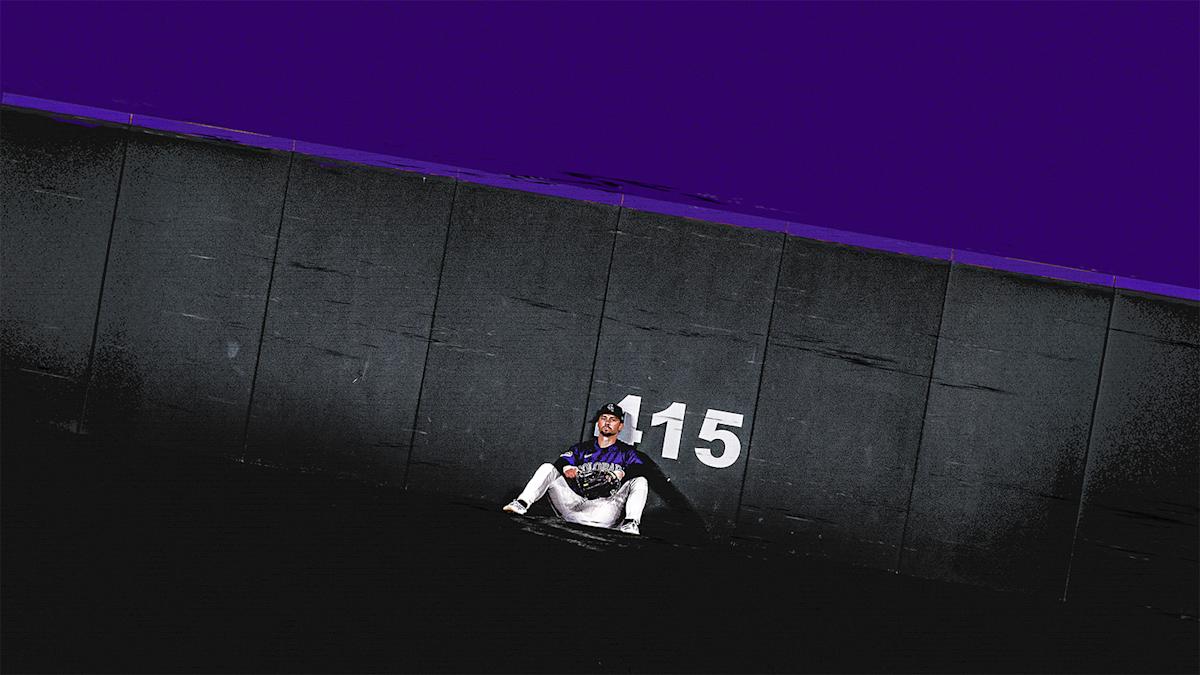
The Colorado Rockies find themselves in a pitiful scenario in the 2025 MLB season, capturing the attention of baseball pundits and fans alike. After a dismal record of 9-46 as of early June, discussions around their trajectory have intensified. The Rockies are not just struggling; they appear to be on track to cement their legacy as one of the worst teams ever, potentially surpassing the Chicago White Sox’s historically bad season in 2024, which saw them set the modern record for losses in a single year.
As fans, it’s incredibly difficult to watch a team plummet, particularly one that managed to make the postseason just a few years ago. The Rockies, under the leadership of longtime manager Bud Black, entered what many hoped would be a fruitful season. Unfortunately, the reality has been far less encouraging. The Rockies have consistently underperformed, losing series after series—18 at the time of writing—and showing little sign of recovery.
### The Managerial Dilemma
Bud Black’s position as a respected figure in baseball is overshadowed by the team’s failures. He has presided over an organization marred by mismanagement and poor performance. In comparison, the White Sox’s Pedro Grifol was canned amid a sea of controversy due to struggles that led to record losses. Black, despite past successes with the Rockies—such as advancing to the playoffs in his first two seasons—now finds himself facing crippling headwinds.
The managerial burden is arduous when the stakes are this dramatically low. Maintaining team morale amid relentless losing can affect not only the results but the players’ psychological state, making a manager’s role ever more challenging. With Grifol’s dismissal last season seen as the “addition by subtraction,” the Rockies must now ponder whether a similar change is necessary; for Black, it may be a matter of when, not if, his departure will come.
### A Glimmer of Hope?
Unlike the Rockies, the White Sox initiated a clear rebuild strategy after their disastrous 2024 campaign. Their general manager, Chris Getz, embarked on an ambitious roster overhaul, focusing on acquiring young talent while parting with veterans. This has led to the formation of a burgeoning squad willing to embrace the challenges of growth.
On the flip side, the Rockies appear to lack a coherent rebuilding strategy. The organization has not emphasized developing talent through trades or drafts. While Ezequiel Tovar and Brenton Doyle arise as the few promising prospects in the organization, the situation looks bleak overall for a swift turnaround.
The most tradable asset, Ryan McMahon, has sympathized with his team’s plight. His decline in performance further complicates matters. Once a thrill for potential trade discussions, he is now seen as part of the problem, with many teams likely cautious of taking on a player in the midst of a downturn.
### Facing a Tough Division
The Rockies’ positioning in the National League West only compounds their struggles. Competing against titans like the Los Angeles Dodgers and San Diego Padres, as well as a resurgent San Francisco Giants and Arizona Diamondbacks, puts them at a significant disadvantage. The overall strength of the division stands starkly against Colorado’s abysmal performance, leading to a relentless onslaught of losses.
Having struggled against their division, with a 3-13 record to date, the Rockies face a conundrum: each failure only drives them further down the standings, while their rivals are poised to strengthen their positions via trades or free agency.
### What Lies Ahead?
As the Rockies are projected to finish at an alarmingly low 26 wins for the season, they risk becoming the quintessential symbol of failure in MLB, competing not for wins but against the specter of historic ineptitude.
Fans are left looking toward the future, yearning for rays of hope amid the gloom. The organization needs to rethink its approach, harness resources for a genuine rebuild, and foster a culture that prioritizes player development and competitiveness. Every game lost not only tarnishes records but also breeds disillusionment among loyal supporters.
This tumultuous chapter in Rockies history places the spotlight on how organizations can rebound from despair more effectively. When compared to teams like the White Sox, who are openly navigating a rebuild, it becomes clear: the Rockies’ path forward necessitates not only a managerial overhaul but a fundamental shift in strategy.
In conclusion, as baseball fans, our hearts ache for teams embattled in turmoil. While we relish the triumphs of our favorite clubs, we also witness and hope against hope for better days ahead for struggling franchises like the Rockies. How they navigate this crisis will play a crucial role in shaping their identity moving forward. Let’s hope for better seasons ahead and the revitalization of the teams we all admire, as bad baseball, while occasionally amusing, is not what we yearn for as supporters of this great sport.
Source link








